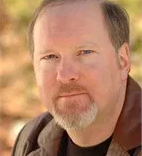Analog…for most of my life
I just sold another story to Analog Magazine, “A Delicate Balance.” No word on when it’ll be published. This will be approximately my tenth appearance in the magazine.
When I was just starting out as a writer, Analog was like the holy grail to me. I had my list of short-story markets, and I submitted stories regularly to every magazine in the science fiction field, but Analog was special. Analog was the magazine that I actually read.
I wrote so many stories, and submitted so many manuscripts, that I’m sure I pestered every editor at every magazine. But the editor of Analog, Dr. Stanley Schmidt, began sending me personal rejection letters from the time I was sixteen years old. (I don’t believe he knew I was just a kid who was obsessed with being a writer.) I kept sending him new stories, and when I was seventeen, Stan replied with a very detailed and encouraging letter that had a major impact on me, gave me confidence, as well as tangible guidance.
“October 15, 1979
Dear Mr. Anderson:
Thank you for letting me see UPON THE WINDS. It had an intriguingly imaginative idea behind it, and I think the telling shows a good deal of potential. Your ability to visualize an exotic setting, and enable the reader to do so too, is quite good. However, your skills do need some honing (which is hardly surprising); a good deal of that should come with practice, but sometimes the process is speeded by pointing out where some of the needs are. In style, the first thing I notice is that you have a tendency to lean rather heavily on long, lecture-like explanations of background: in general, it’s better to get right into the action and reveal background gradually and as unobtrusively as possible. It’s hard with a story like this, where there’s a good deal that has to be established right at the outset, but it can be done and needs to be done
The other thing is a matter of a special set of science-fictional skills, which are always helpful, but for Analog they’re essential. You have to make sure your exotic setting works. I don’t think this one does; the picture I get here is of the Noreed living in isolation on an otherwise essentially lifeless world. This won’t work; an animal functions only as part of an interlocking ecosystem which, at there very least, must also include some plants (or things that serve the ecological functions of plants). What I’d recommend doing is backing all the way up to the formation of this planet and thinking out how it evolved and life evolved on it. The process will almost certainly lead to a richer ecology and fuller understanding of why the Noreed act as they do — which may turn out, inevitably, to be significantly different from the way you’ve pictured it here. But it will be a more believable way, because the reader will sense that what you tell him is part of a self-consistent larger whole, even if most of the supporting detail never finds its way into the final story. This is one of the most important “secrets” of writing successful science fiction about alien worlds. I don’t know how much you know about the astronomical and biological thinking that’s needed to do this sort of thing, but there’s a basic body of it which is so important that you should familiarize yourself with it as soon as possible if you’re seriously interested in writing science fiction; the time will be well invested, and I think you’ll enjoy it. A few readings you should try, if you haven’t already done so, are these: the two essays on creating imaginary worlds and beings by Poul Anderson and Hal Clement, in Reginald Bretnor’s book SCIENCE FICTION: TODAY AND TOMORROW; I. S. Shklovskii and Carl Sagan’s INTELLIGENT LIFE IN THE UNIVERSE; and Poul Anderson’s IS THERE LIFE ON OTHER WORLDS?’ and Stephen H. Dole’s HABITABLE PLANETS FOR MAN. I think you’ll find these not only help you learn to create solid settings, but are just bristling with good story ideas.
Meanwhile, keep writing, and I’ll look forward to seeing your future work.
Sincerely,
Stanley Schmidt
Editor”
I did keep sending new stories to Stan, but my first pro sale was to The Magazine of Fantasy & Science Fiction in 1985. A few years later, when I finally did sell a manuscript to Analog, then I felt as if I had really made it in the field.
Because Stan Schmidt and others took the time to encourage me and give me advice when I was young and ambitious, but untrained, I did learn how to become a writer. Since then, in the spirit of paying forward, Rebecca and I have given countless writing workshops, presented talks on writing, helped other aspiring authors. Maybe 32 years from now some other successful writer will haul out an old encouraging letter that I wrote him or her. I hope so.
Rebecca and I will be giving detailed writing workshops at DragonCon in Atlanta this Labor Day. Also, in April-May 2012, we will present a 3-day intensive workshop on the business of writing, the Superstars Writing Seminar, along with fellow bestselling authors Brandon Sanderson, Eric Flint, and David Farland. If you’re interested in signing up for the next Superstars, please be aware that prices increase $100 on May 1. For further information, see the Superstars webpage.




You must be logged in to post a comment.